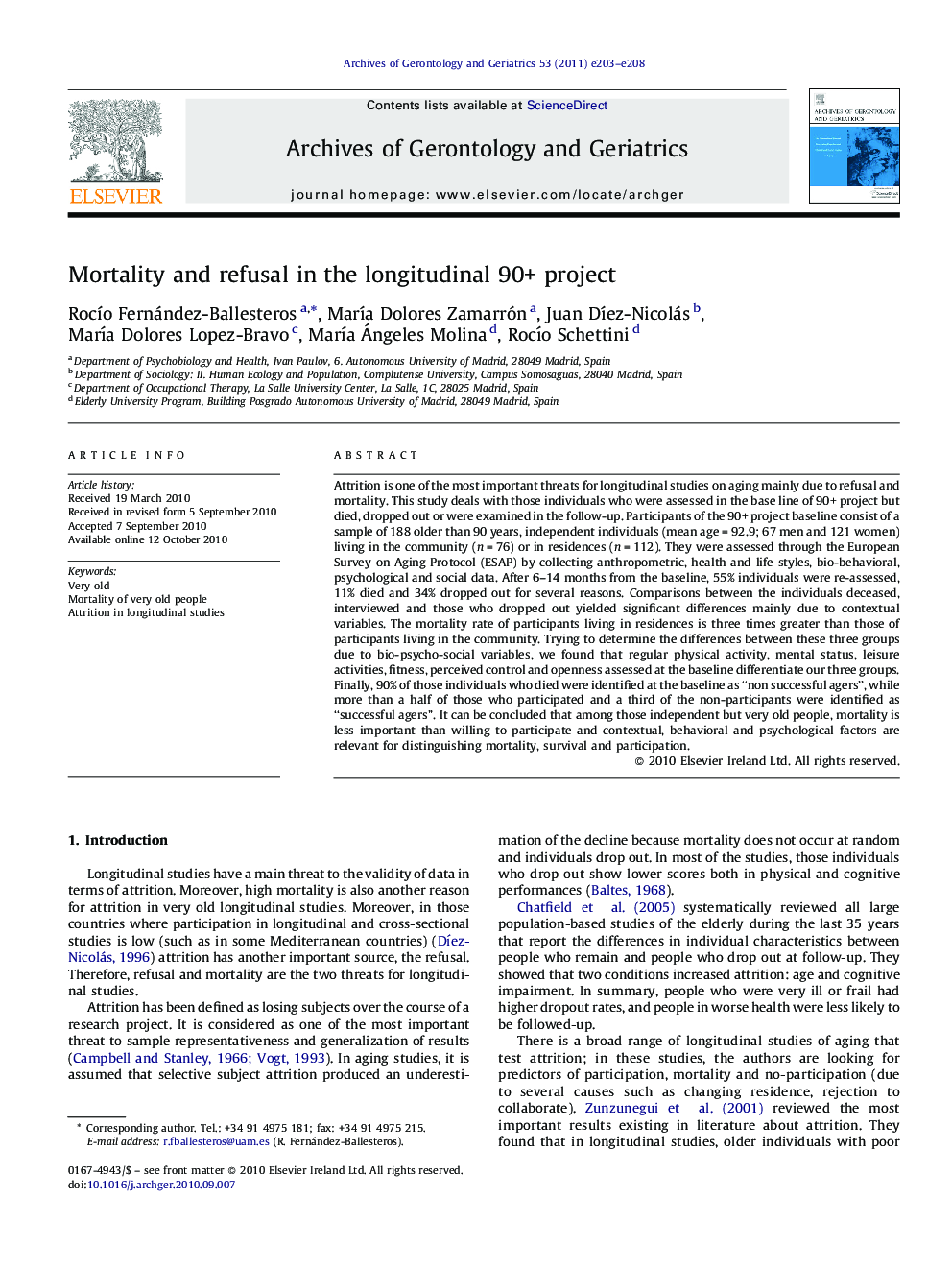| کد مقاله | کد نشریه | سال انتشار | مقاله انگلیسی | نسخه تمام متن |
|---|---|---|---|---|
| 1903521 | 1534453 | 2011 | 6 صفحه PDF | دانلود رایگان |

Attrition is one of the most important threats for longitudinal studies on aging mainly due to refusal and mortality. This study deals with those individuals who were assessed in the base line of 90+ project but died, dropped out or were examined in the follow-up. Participants of the 90+ project baseline consist of a sample of 188 older than 90 years, independent individuals (mean age = 92.9; 67 men and 121 women) living in the community (n = 76) or in residences (n = 112). They were assessed through the European Survey on Aging Protocol (ESAP) by collecting anthropometric, health and life styles, bio-behavioral, psychological and social data. After 6–14 months from the baseline, 55% individuals were re-assessed, 11% died and 34% dropped out for several reasons. Comparisons between the individuals deceased, interviewed and those who dropped out yielded significant differences mainly due to contextual variables. The mortality rate of participants living in residences is three times greater than those of participants living in the community. Trying to determine the differences between these three groups due to bio-psycho-social variables, we found that regular physical activity, mental status, leisure activities, fitness, perceived control and openness assessed at the baseline differentiate our three groups. Finally, 90% of those individuals who died were identified at the baseline as “non successful agers”, while more than a half of those who participated and a third of the non-participants were identified as “successful agers”. It can be concluded that among those independent but very old people, mortality is less important than willing to participate and contextual, behavioral and psychological factors are relevant for distinguishing mortality, survival and participation.
Journal: Archives of Gerontology and Geriatrics - Volume 53, Issue 2, September–October 2011, Pages e203–e208